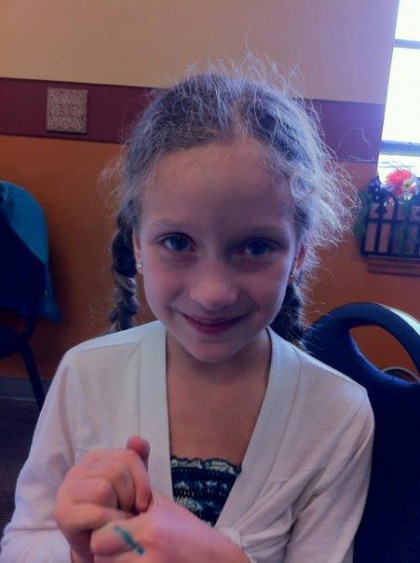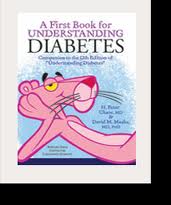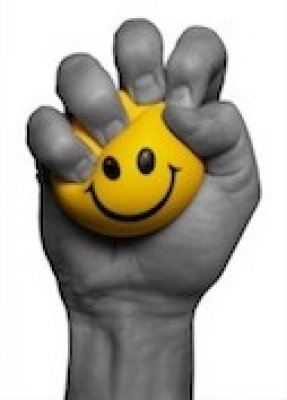Surprise Diagnosis
Devra Torres | Feb 27, 2014

Last Tuesday, I brought my eight-year-old in for a checkup, sensing that something wasn’t right.

My mother’s intuition only took me so far, though: I assumed that, whatever it was, a week of amoxicillin would probably take care of it.
But it turned out to be juvenile diabetes.
Her prognosis looks very good, but treatment is time-consuming, especially for us beginners! So it’s a fine day for 7 Quick Takes. (Thanks to Jen at Conversion Diary for hosting.) Here are seven things that have been on my mind:
--1--
A heartening bit of personalism has found its way into the Pink Panther book, a highly acclaimed guide routinely given to parents of kids with this diagnosis.

" Think of the person first, and THEN the diabetes."
We wouldn’t want to say “My son is ADHD” and we don’t say (anymore) “That man is a cripple” or “That little boy is Downs Syndrome”—as if you’re a disorder or condition with a person attached, instead of the other way around. This is one piece of political correctness that's perfectly legitimate, and I’m glad it’s made it onto page 63 of this standard reference book.
--2--
Why did God send us this? Or did He? Is this His active will, His permissive will, His consequent will, or what? The answer can get complicated, and the question needs nuance, but it’s one that certainly occurred to my husband and me. He writes about it here, and there’s an interesting discussion in the combox of exactly the sense in which God does and doesn’t “send” us disease and hardship and suffering. There’s a difference between a good and something He can bring good out of.
--3--
What interested me most of all is my husband’s insistence that God doesn’t “instrumentalize” us. In one particular irrational and self-centered moment, I did imagine God looking down from heaven upon us and saying, "Let's see, what would it take for Devra Torres to become organized, nutrition-conscious, and disciplined? I know…!”
But that would be instrumentalizing our little girl to prove a point, or achieve an end (even if we grant that my acquiring these qualities would be a big improvement, and thus a desirable end). As high as the heavens above the earth

are His ways above our ways, yes—but some things, we can know. He’s not a mean-spirited utilitarian.
--4--
Something else on my mind: the “compassion industry.” Get a diagnosis like this, and organizations peopled by experts who know how to talk to someone in your situation may start coming out of the woodwork. I don’t mean to be ungrateful, and the people in question range from well-intentioned to heroic, but there’s something generic about it— something that takes the human reality of fear and suffering and life and death and turns it into the target of tools 'n techniques for the activation of coping mechanisms.

--5--
The examples of generic compassion I saw this week were highly benign. But I remember when my grandmother was dying of cancer and my mother was revolted to find that they’d sent in a social worker who was an “expert in death and dying.” She’d read Elizabeth Kuebler-Ross’ five stages, or something. I think my mother’s instincts were right. She wanted to know: Expert in death and dying? Who is she, God?
--6--
There’s a grain of truth here, too, of course. Some things are common to human experience, and if somebody has dealt with many people facing a certain diagnosis or prognosis, she may certainly have something of value to contribute. Just as long as she doesn’t foist fake feelings on you! When my husband was a broker, he was trained in the “feel, felt, found” technique. You were supposed to tell the client, with the most convincing imitation of sincerity you could muster: “Yes, I understand how you feel. I’ve felt that way myself. But I’ve always found…”

Comfort and help is one thing. Manipulation is another.
--7--
When I was growing up, we had a family motto: "It Could Always Be Worse." This is very, very true right for us right now. I remember reading in Fr. Michel Esparza's Self-Esteem without Selfishness about a paraplegic priest with a very lively sense of all the supernatural graces that had been showered on him. About his physical condition, he used to say, "I feel like a millionaire who got robbed of a nickel." I wouldn't describe my feelings that way, but I hope to get there.

* * * * *
HAVE A BLOG? COME JOIN THE FUN!:
After you've written your 7 Quick Takes post, add its URL to the list by clicking on the button below that says "Add your link." A few details:
